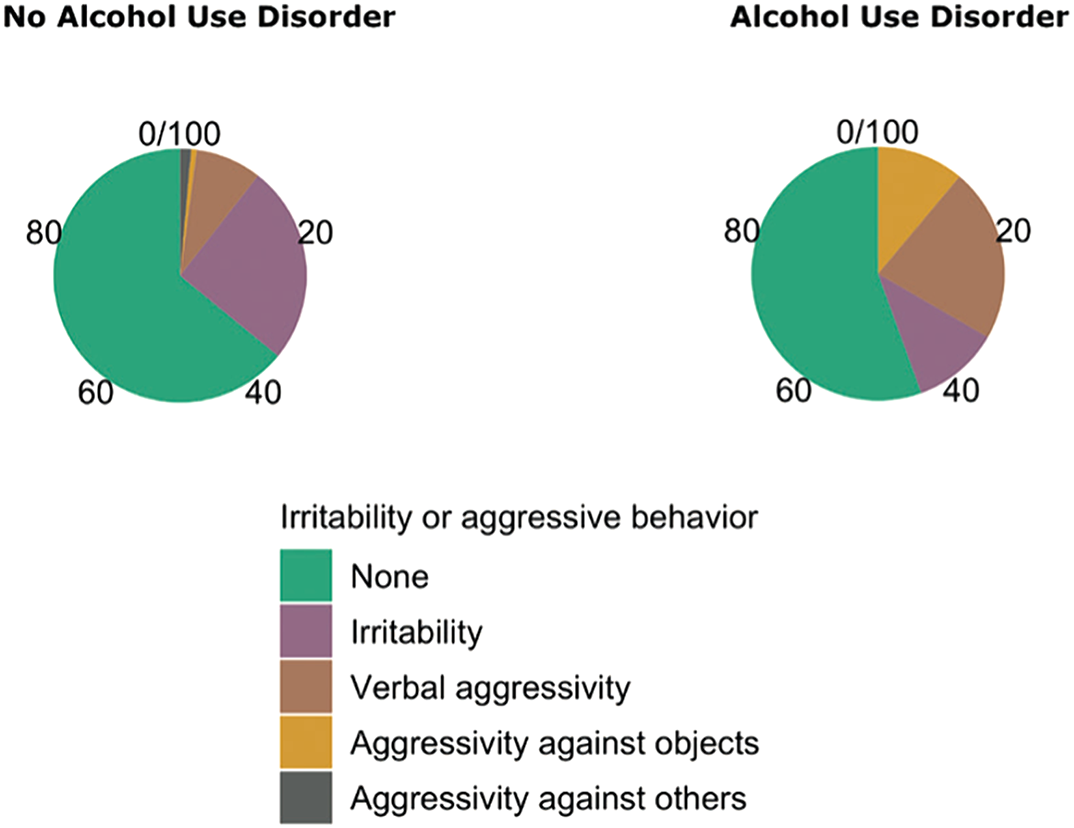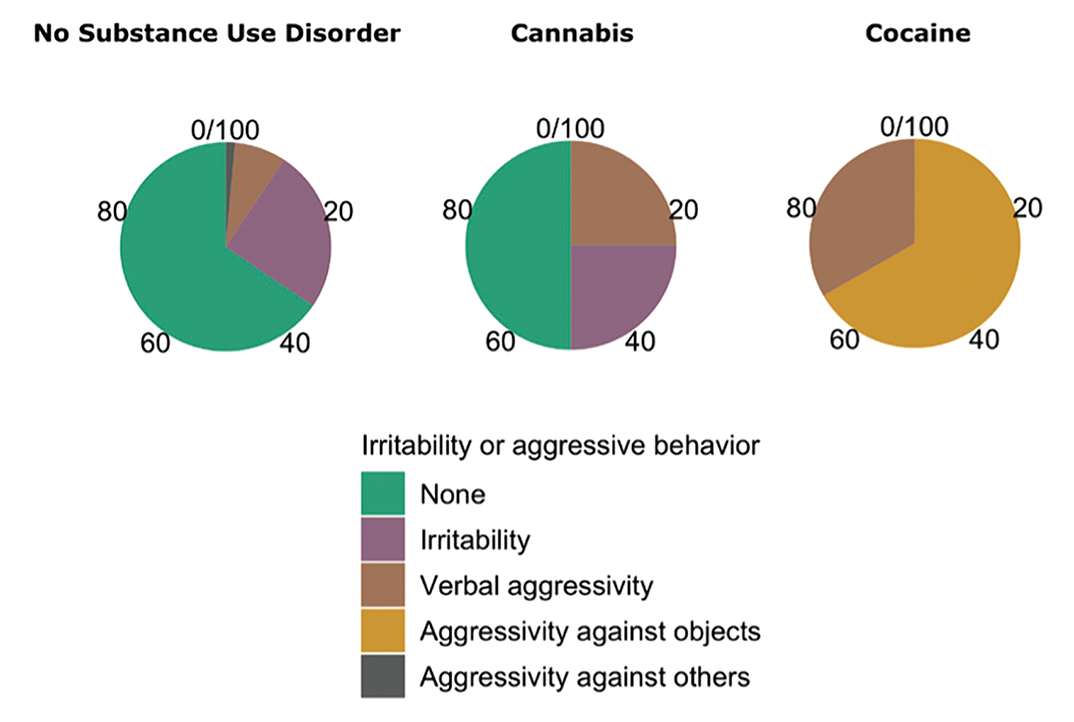European Psychiatry ( IF 7.2 ) Pub Date : 2022-09-01 , DOI: 10.1192/j.eurpsy.2022.1043 R. Zanardi , E. Manfredi , F. Attanasio , M. Carminati , C. Colombo
Many studies have searched for an association between violence and psychiatric diagnoses, without providing a confirmative result.
ObjectivesWe have sought to deepen this topic, analysing different aspects of aggressivity, focusing on a specific diagnosis and its particular phases of illness, and looking for a correlation between psychiatric co-diagnoses and outpatients’ visits adherence.
MethodsWe studied 151 bipolar type I inpatients presenting complaint, past medical and family history; we collected information about lifetime hetero/self-aggressive behaviours, irritability, agitation, suicide attempts, alcohol, or substance abuse.
Results

The overall aggressivity in our sample resulted in 11.92% of cases, while the number of aggressive episodes during euthymia decreased to 2.64%, close to the population without psychiatric disorders. Personality disorders and alcohol abuse appeared to be the main risk factors for irritability [Fig. 1]; substance abuse for both irritability and hetero-aggressive behaviour [Fig. 2]. We observed that subjects who displayed better compliance to follow-up visits exhibited a significant lower aggressive behaviour than less adherent subjects. Moreover, our data disconfirm the common conception that correlates the presence of psychotic features to violence.
ConclusionsStudying aggressive in a bipolar population, we observed that the rare episodes of aggressiveness were condensed in active phases of illness and mainly related to alcohol or substance abuse, while violent acts during long periods of wellbeing appear in line with those of the general population. We are confident our data might be helpful in deconstructing the stigma that a psychiatric diagnosis equals to violent behaviour.
DisclosureNo significant relationships.
中文翻译:

双相情感障碍的一个缺陷:攻击性行为
介绍
许多研究都在寻找暴力与精神病诊断之间的关联,但没有提供确证的结果。
目标我们试图深化这一主题,分析攻击性的不同方面,关注特定诊断及其特定疾病阶段,并寻找精神科共同诊断与门诊患者就诊依从性之间的相关性。
方法我们研究了 151 名有主诉、既往病史和家族史的双相 I 型住院患者;我们收集了有关终生异性/自我攻击行为、易怒、激动、自杀未遂、酒精或药物滥用的信息。
结果

我们样本中的整体攻击性导致 11.92% 的病例,而在 euthymia 期间攻击性发作的数量减少到 2.64%,接近没有精神疾病的人群。人格障碍和酗酒似乎是易怒的主要危险因素[图。1]; 因易怒和异类攻击行为而滥用药物[图。2]。我们观察到,对后续访问表现出更好依从性的受试者比依从性较差的受试者表现出显着较低的攻击性行为。此外,我们的数据证实了将精神病特征的存在与暴力相关联的普遍概念。
结论在研究双相人群的攻击性时,我们观察到罕见的攻击性发作集中在疾病的活动阶段,主要与酒精或药物滥用有关,而长期健康期间的暴力行为似乎与一般人群的行为一致。我们相信我们的数据可能有助于解构精神病诊断等同于暴力行为的污名。
披露无重要关系。















































 京公网安备 11010802027423号
京公网安备 11010802027423号